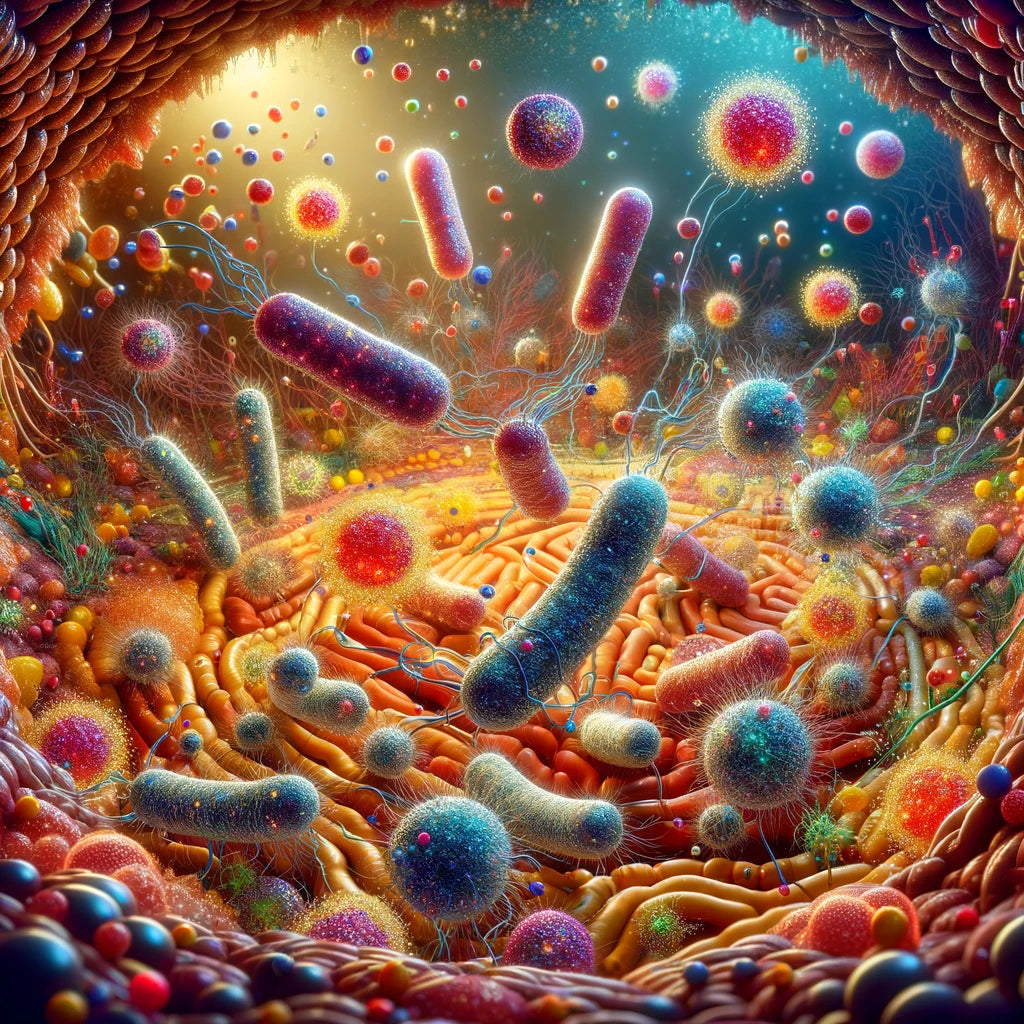
The Journey From Food to Your Gut: Building a Healthy Microbiome
Share
The Journey From Food to Your Gut: Building a Healthy Microbiome
Now that we’ve explored how nutrient-rich food begins its life in healthy soil, let’s follow the journey of these nutrients as they make their way through the body, starting with the gut—a critical hub of health and wellness.
The Gut Microbiome: A Living Ecosystem Inside You
Your gut microbiome is a vibrant community of trillions of bacteria, fungi, and other microorganisms that live in your digestive tract. These tiny organisms are responsible for breaking down food, absorbing nutrients, and even producing vitamins like B12 and K. The state of your gut microbiome is directly influenced by what you eat, which means food grown in nutrient-rich soil has a significant advantage in fostering gut health.
How Nutrient-Dense Food Nourishes the Gut
-
Fiber as Fuel
Nutrient-rich fruits, vegetables, and whole grains grown in regenerative systems are high in dietary fiber, which serves as food for beneficial gut bacteria. These bacteria ferment fiber, producing short-chain fatty acids (SCFAs) like butyrate, which help maintain the integrity of the gut lining and reduce inflammation throughout the body. -
Diverse Microbial Populations
Foods grown in biologically active soil tend to carry diverse microbial populations themselves. When we consume these foods, we ingest some of these beneficial microbes, helping to enhance the diversity of our gut microbiome—a key factor in overall health. -
Natural Compounds and Antioxidants
Nutrient-dense produce contains higher levels of phytochemicals like flavonoids and polyphenols. These compounds support gut bacteria while also providing antioxidant and anti-inflammatory benefits.
The Gut as the Gateway
As food is digested in the stomach and small intestine, the nutrients are absorbed into the bloodstream. A healthy gut ensures that this process happens efficiently and effectively. Conversely, an unhealthy gut with poor microbial diversity can result in “leaky gut” syndrome, where harmful substances pass into the bloodstream, potentially leading to inflammation and chronic disease.
Beyond the Gut: Impact on Mental Health
Did you know your gut microbiome communicates directly with your brain? This connection, called the gut-brain axis, plays a significant role in mood regulation, mental health, and cognitive function. Beneficial gut bacteria produce neurotransmitters like serotonin (the “happiness hormone”), which affect your mood and stress levels.
When we consume nutrient-rich foods that foster a balanced gut microbiome, we’re not just improving digestion—we’re supporting mental clarity, emotional resilience, and overall well-being.
What Happens Next
In the next article, we’ll trace the journey of nutrients from the gut into the bloodstream, kidneys, and beyond, exploring how these elements circulate throughout the body and nourish every cell. Stay tuned to discover how the health of your soil affects not just your gut but every aspect of your mental and physical health.
Next Article: The Nutrient Highway
